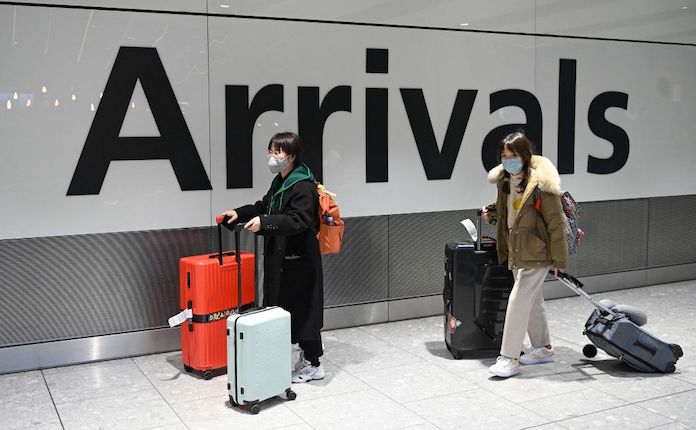Anyone travelling from China to the UK will now be asked to present evidence of a negative Covid-19 test before they are allowed to enter the country. But what will this achieve and is this measure even necessary?
It’s often argued that these sorts of restrictions don’t work, and this is a reason the UK should not have impeded travel from China. But this depends entirely on where the bar for success is set. If the measures are intended to completely stop all infected individuals then they clearly won’t work. This kind of testing isn’t accurate enough to identify everyone who is infected and someone will always find a way around the rules. But if all that’s required is to slow down or reduce those numbers – what was once called ‘flattening the curve’ or ‘squashing the sombrero’ – then it’s conceivable that they may have some effect, if enforced properly.
Given the current winter pressures, it’s argued by some Tory MPs that the NHS doesn’t need any extra patients and so these measures will help the health service. But in a largely vaccinated population like the UK, will this really be the case? The worst Covid effects most people will have are feeling unwell for a few days, not something which is unusual during the winter months. The risk of hospitalisation from Covid has reduced enormously and if someone has turned down the vaccine, that’s their lookout.
But, unfortunately, a country like China may provide the virus with just the right conditions for a new variant to arise which is less sensitive to existing immunity.
Some doctors and scientists are worried that China is fertile ground for nature to create new versions of the virus which can evade our protective immunity.
It’s only about a month since we saw widespread scenes of civil unrest in Chinese cities as ordinary people reacted violently to being shut in their homes yet again. Now China has dismantled its system of extensive testing and overbearing regulation of people’s lives and is lifting restrictions which discouraged travel outside the country. Beijing has also stopped releasing data on infection numbers and tightened the definition of what constitutes a Covid 19 death, which has led to the official figures dropping like a stone.
The growing number of anecdotal reports of a rapidly deteriorating Covid 19 situation casts doubt over whether this was the right thing to do. Meanwhile, the Chinese Foreign Ministry has described reports about the country’s Covid situation as ‘prejudiced hype, smears and political manipulation with ulterior motives’. Protesting too much is never a good look, particularly when the situation is so opaque.
This also presents a problem for Britain though. Every time someone gets infected, new variants are created, most of which are of no consequence. But very rarely one will crop up with the capacity to cause problems. With millions of new infections every day, in a population which is believed to have a relatively low level of immunity, some doctors and scientists are worried that China is fertile ground for nature to create new versions of the virus which can evade our protective immunity.
The counter-argument is that there is no evidence of such variants yet. But this could be more a case of absence of evidence than evidence of absence. China has been accused of being secretive with its data on the variants circulating inside the country. Reports that Beijing is now stepping up its efforts to categorise Covid genetic code suggests that their data collection has, up till now, been inadequate.
All of this is crystal ball gazing, nobody knows what is going to happen. And no government wants to impose restrictions unnecessarily. But had the UK government failed to act and the situation deteriorated, it would have had some very uncomfortable questions to answer, especially as other countries are being more cautious. Initial conflicting reports on whether the authorities in the UK were even keeping their testing policy under review created an appearance of dither.
Whatever it does now, the government needs to be clear about why it introduced these measures and say what a successful outcome would be. Otherwise, the government’s detractors will do the job for it and guarantee this policy’s appearance of failure.






Comments